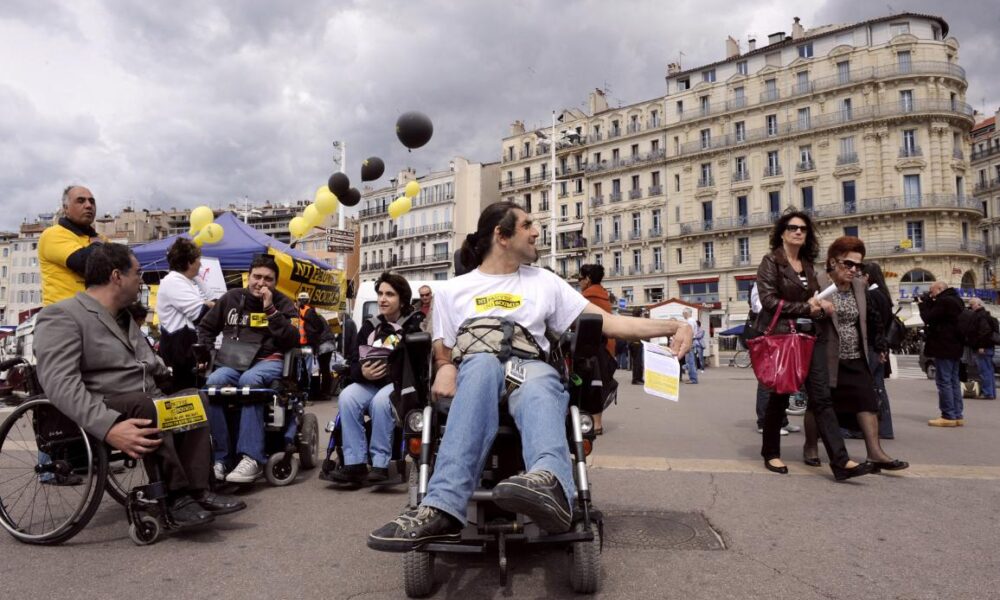
The European Economic and Social Committee (EESC) hails the new EU Disability Rights Strategy as a step forward in implementing the UN Convention on the Rights of Persons with Disabilities (UNCRPD). The Strategy has taken on board many of the suggestions proposed by the EESC, the European disability movement and civil society. The proposals include full harmonisation of the new agenda and strengthened EU-level supervision of its application. The EESC is, however, concerned about the watering down of the binding measures and hard law implementing the Strategy.
At its plenary session held on 7 July, the EESC adopted the opinion Strategy on the rights of persons with disabilities, in which it gave its take on the European Commission’s new strategy, set to improve the lives of some 100 million Europeans with disabilities over the next decade.
Despite describing the new strategy as laudable and more ambitious than its predecessor, the EESC was concerned about the prospects of its sound implementation. It also deplored the absence of any concrete and specific measures to end discrimination against women and girls with disabilities.
“The Disability Rights Strategy can advance the rights of persons with disabilities in the EU and has potential to achieve real change, but this depends entirely on how well it is implemented and how ambitious the individual actions are. It has taken on board proposals from the EESC and the disability movement. However, it lacks ambition in binding legislation,” said the rapporteur for the opinion, Ioannis Vardakastanis.
“We need to turn words into deeds. If the European Commission and the Member States are not ambitious in pushing for actions that challenge the status quo, the Strategy could well fall short of the expectations of around 100 million persons with disabilities in the EU,” he warned.
The EU Recovery and Resilience Facility (RRF) should be strongly linked to the EU Disability Rights Strategy and help persons with disabilities to recover from the effects of the pandemic, as they were among the worst hit. The link with the implementation and monitoring of the Action Plan for the EU Pillar of Social Rights should also be ensured and maximised, the EESC said in the opinion.
Sufficient human and financial resources should be provided for the current monitoring system for EU actions relating to the UNCRPD. The EESC strongly recommended that the European Commission look at how EU institutions and Member States can cooperate to better include people with disabilities by reviewing the existing Declaration of Competences and ratifying the Optional Protocol to the UNCRPD. These steps will give the EU a more decisive say in Member States’ compliance with the UNCRPD provisions. The Commission must also be resolute in opposing plans for investments that go against the UNCRPD, such as investments in institutional care settings.
The EESC called for specific actions addressing the needs of women and girls with disabilities through a flagship initiative in the second half of the EU Disability Rights Strategy period in order to ensure that the gender dimension was included. The focus on women should include a dimension of gender violence and women as informal carers of relatives with disabilities.
The EESC was pleased to see the proposal for a resource centre called AccessibleEU, one of the flagship initiatives of the new strategy, although it fell short of the EESC’s request for an EU Access Board with broader competences. The objective of AccessibleEU would be to bring together national authorities responsible for implementing and enforcing accessibility rules and accessibility experts and professionals, and monitor the implementation of EU laws providing for accessibility. The Commission needs to be clear and transparent about how it plans to fund and staff this agency, and how it will make sure that persons with disabilities are represented, the EESC stressed.
The EESC strongly endorses the flagship initiative on the EU Disability Card and believes it has the potential to foster great change. However, it regrets that there is as yet no commitment on how to ensure it is recognised by the Member States. The Committee stresses the need for the Disability Card to be implemented by means of a regulation, which would make it directly applicable and enforceable throughout the EU.
People with disabilities should be given the possibility to play a full role in the political life of their communities.The EESC supports the plan for a guide on good electoral practice addressing the participation of persons with disabilities in the electoral process in order to guarantee their political rights.
It is crucial to focus on good-quality jobs for persons with disabilities, especially in the light of the COVID-19 pandemic. The EESC stresses that the main goal is not just higher employment rates, but also quality employment that allows people with disabilities to improve their social circumstances through work. The EESC suggests including indicators on the quality of employment of persons with disabilities.
The EESC also calls on the disability movement to be proactive and to push for each and every action of this Strategy to deliver on what it promises. Social partners and civil society organisations should fully support the implementation of the new Strategy. It is not the Strategy itself that will deliver real change for persons with disabilities, but rather the strength of each of its components over the coming decade, the EESC concluded.




























